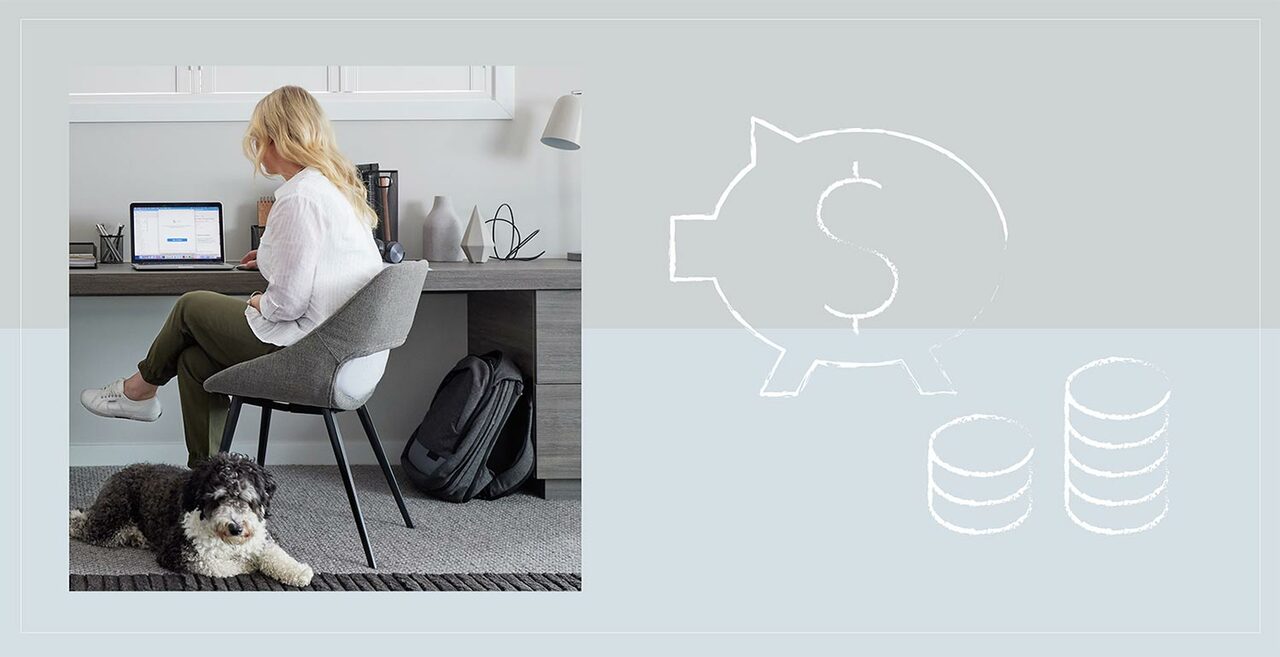The 6 Tax Deductions You Need to Know

It’s tax season again! Here’s 6 tax deductions you need to know about to get the most out of your tax return.
Tax time is upon us once again. While very few of us actively enjoy doing our tax returns, there is a silver lining. Around two-thirds of the 14 million people who lodge an annual return get a refund from the ATO, with HR Block estimating the average return at a substantial $2,800. Well worth giving up an evening for!
To maximise your tax refund in 2022, it’s important that you claim all the deductions that you’re legally entitled to. We’ve put together a list of the more unusual deductions available to homeowners below. Penalties apply for claiming things you’re not entitled to, though, so consult a tax professional if you’re unsure.

We outline the 6 tax deductions you might not have known about, to ensure you get the most out of this tax season!
1. Home office expenses
Most of us know that you can claim something if you have a home office. However, the rules around this are fairly complicated, so it’s worth spending some time on the various deduction methods.
Actual cost method - If you have a dedicated home office, you can claim a percentage of the following expenses:
- Rent or mortgage payments
- Home insurance
- Depreciation of home office equipment
- Utility costs
- Work-related phone and internet expenses
For the housing and utility costs, you’ll need to work out what percentage of the house is given over to a home office and claim that percentage. Depreciation and work-related phone and internet are claimed as incurred.
If you don’t have a home office, you can still claim phone, internet and depreciation of equipment. However, you are usually better off using the shortcut method.
Shortcut method - This was brought in in 2020 as a response to the COVID-19 pandemic, and at this stage is only available until 30 June 2022. The shortcut method allows you to claim a set rate (currently 80 cents per hour) for every hour worked at home. If you choose this method, you can’t also claim for depreciation or running costs on top.
Fixed rate - This method was available prior to COVID-19 and remains available for taxpayers who don’t want, or aren’t able, to itemise all their expenses. It offers a lower fixed rate per hour worked at home as compared to the shortcut method, at 52 cents instead of 80 cents. You may also claim phone and internet expenses on top.

Renting out a room may mean you're eligible for tax deductions! Featured here: Granville, Smiths Lane, Clyde North.
2. Renting out a room
You may not own an investment property, but if you rent out a room (or several rooms) in your house you can claim deductions for the proportion of the home that generates rental income. These might include utility costs, depreciation, and mortgage interest. The amount you can claim will depend on the percentage of the home your tenants have access to.
3. Dogs
Yes, you read that right. This will not apply to most of us but fun to know, your dogs can be legitimate tax deductions. This probably doesn’t apply to your average household pet, but you can claim them if they are working dogs who:
- Round up livestock or other animals on a working farm
- Guard business premises
- Guard equipment (for example, a set of tools on a work site)
4. Bags
If you have a handbag or laptop bag at home that you use predominantly for transporting work-related items like a laptop, work phone or tablet, it may be tax-deductible.
This doesn’t mean you can claim that new Prada evening bag, but if the cost is reasonable, and it’s of a size and nature that makes it usable for work, the picture changes. Be aware that the ATO will ask you to substantiate the cost if it’s particularly high and may want to see evidence that it is used for the purpose you’re claiming.

Did you know you could claim a portion of your home internet and phone plan if you're working from home?
5. Mobile phones and internet
This is a great example of a deduction that has become more common as more people have moved to mobile working arrangements. Even if you don’t work from home, many of us are expected to be reachable out of hours and to be checking emails even on days off. The good news? If this is an expectation in your workplace, you can claim a portion of your home internet and phone plan accordingly.
The ATO has been known to audit these claims, so to substantiate it, consider:
- Evidence about your job confirming that you’re expected to use your phone for work purposes;
- Itemising work vs personal usage on your phone bill, or;
- Keeping a record of all work-related calls and data downloaded for work purposes
6. Income protection insurance
If you have income protection insurance, the premiums are tax-deductible. This doesn’t include life insurance or some other types of personal insurance, such as critical care, so check with your accountant if you’re unsure.
Maximising your tax return is a great way to bolster your savings or pay down your mortgage faster. Use the annual lump sum to help reach your goals faster.
Get more expert mortgage advice from our in-house construction finance specialists. Ready to buy? Get in touch with us on 1300 328 045 to enquire about our house and land packages.
